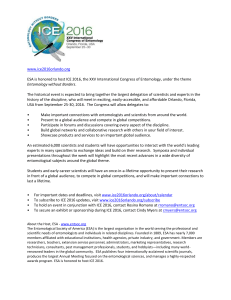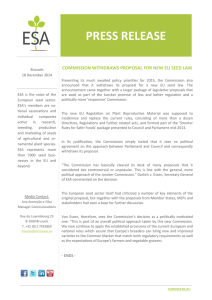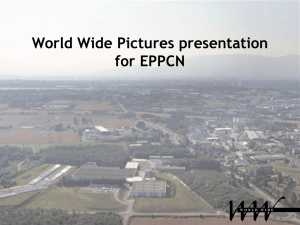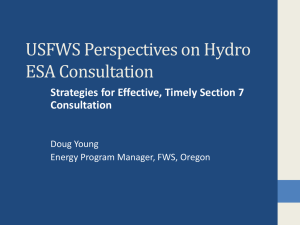7a3ef8933db478af7f5dc8140c9fddfb
advertisement
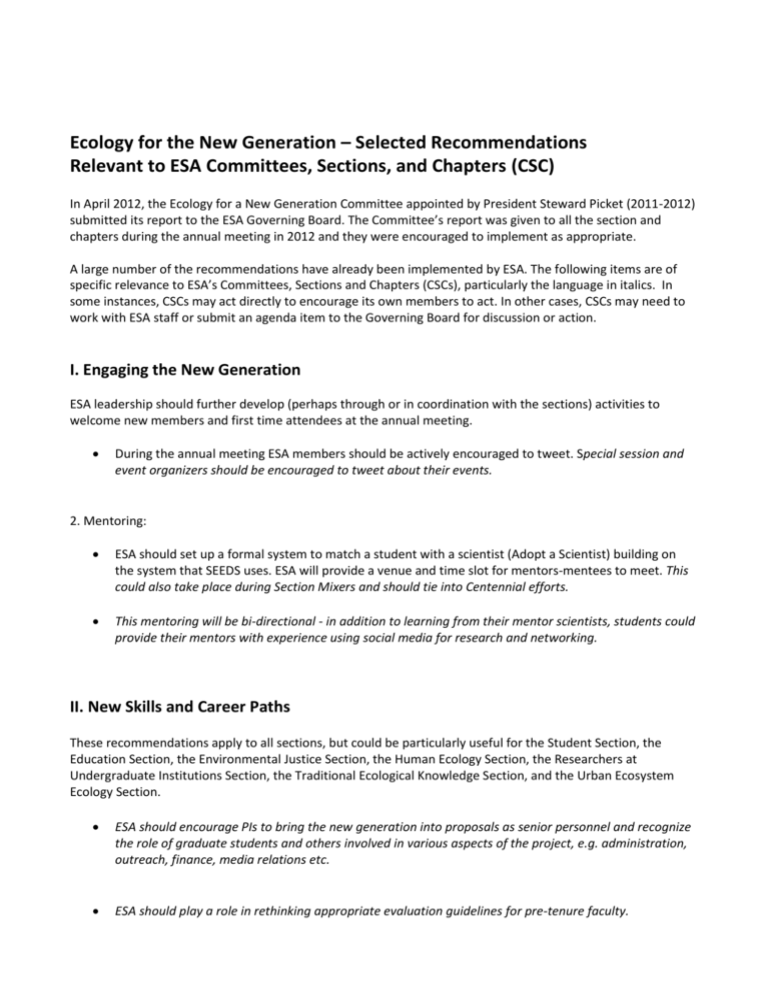
Ecology for the New Generation – Selected Recommendations Relevant to ESA Committees, Sections, and Chapters (CSC) In April 2012, the Ecology for a New Generation Committee appointed by President Steward Picket (2011-2012) submitted its report to the ESA Governing Board. The Committee’s report was given to all the section and chapters during the annual meeting in 2012 and they were encouraged to implement as appropriate. A large number of the recommendations have already been implemented by ESA. The following items are of specific relevance to ESA’s Committees, Sections and Chapters (CSCs), particularly the language in italics. In some instances, CSCs may act directly to encourage its own members to act. In other cases, CSCs may need to work with ESA staff or submit an agenda item to the Governing Board for discussion or action. I. Engaging the New Generation ESA leadership should further develop (perhaps through or in coordination with the sections) activities to welcome new members and first time attendees at the annual meeting. During the annual meeting ESA members should be actively encouraged to tweet. Special session and event organizers should be encouraged to tweet about their events. 2. Mentoring: ESA should set up a formal system to match a student with a scientist (Adopt a Scientist) building on the system that SEEDS uses. ESA will provide a venue and time slot for mentors-mentees to meet. This could also take place during Section Mixers and should tie into Centennial efforts. This mentoring will be bi-directional - in addition to learning from their mentor scientists, students could provide their mentors with experience using social media for research and networking. II. New Skills and Career Paths These recommendations apply to all sections, but could be particularly useful for the Student Section, the Education Section, the Environmental Justice Section, the Human Ecology Section, the Researchers at Undergraduate Institutions Section, the Traditional Ecological Knowledge Section, and the Urban Ecosystem Ecology Section. ESA should encourage PIs to bring the new generation into proposals as senior personnel and recognize the role of graduate students and others involved in various aspects of the project, e.g. administration, outreach, finance, media relations etc. ESA should play a role in rethinking appropriate evaluation guidelines for pre-tenure faculty. a. ESA should develop a document that draws attention to professional activities that may be undervalued in the current evaluation and reward system. b. ESA can develop a template for letters of recommendation to encourage the inclusion III. Action Ecology, Translational Ecology, Environmental Justice These recommendations apply to all sections, but should be integrated specifically with the Education Section, the Environmental Justice Section, the Human Ecology Section, the Traditional Ecological Knowledge Section, and the Urban Ecosystem Ecology Section. For example, ESA could invite politicians, environmental lawyers or any other stakeholders working with diverse issues that involve ecology and create open forums where all the parties can share and come with recommendations or solutions. 1. ESA should develop a new format for informal but planned round table discussions on topics including, but not limited to: a. How to translate research into action (Action Ecology/Translational Ecology) b. Environmental Justice c. Public policy and the environment 2. Organized oral sessions should be encouraged to include time within the schedule to have a discussion integrating the research topic with policy, outreach, etc. 3. If the session incorporates impacted communities, then the review process should take more time to consider whether or not (and how) the session organizers and participants include members from the impacted communities. 4. As part of the renovation of the website, ESA can create a directory of experts and organizations with experience working in specific communities or regions to promote research that respects and reflects best cultural practices and norms. 5. ESA should develop a list of initiatives where ecology is currently absent but could play an important role and inform development (e.g., Engineers Without Borders) IV. International Networks These recommendations apply to all sections, but should be integrated specifically with the Student Section, the Asian Ecology Section, the International Affairs Section, the Environmental Justice Section, the Traditional Ecological Knowledge Section, and the Urban Ecosystem Ecology Section. Additionally, these recommendations should be integrated with the activities of the international chapters for Canada, Mexico, and South America. 1. ESA should work with the International Affairs Section and the Student Section to run annual workshops on resources for funding for international students and faculty (e.g. USAID, NSF, Fulbright) support. Workshops would be directed at participants who are not US citizens or permanent residents. 2. ESA should create a web-based network for those interested in working abroad to exchange ideas about conducting research outside of the United States. 3. ESA should organize an annual research mixer for international ecologists looking for collaborations with US scientists and for US scientists interested in working internationally. The purpose of the mixer is to promote global ecology and initiate international research collaborations. This mixer would occur during the annual meeting. It would require registration and would allow researchers to present posters (in addition to the posters or talks they present at the meeting) to share their research/field site/study organism, etc. with other participants. 4. ESA should develop and support a volunteer network of proof-readers to help non-native English speakers publish.

